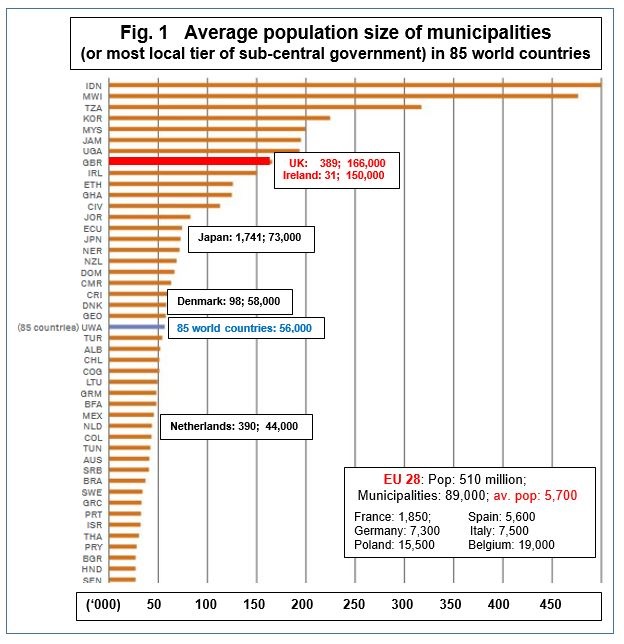Chris Game
The signs are that we’ll be seeing fewer overseas students in Birmingham in the future. Which is regrettable in so many ways and deserves public airing and protest – but it isn’t, I confess, the real prompt for this blog. The best link I can manage is to suggest that, were students from a pretty high proportion of the 150-odd nations represented on our campus to read some of this week’s media headlines, they’d surely be surprised at how centrally dominated and fiscally weaker even England’s biggest local authorities (like Birmingham City Council) seem than sub-national governments in their own, often reputedly less democratic, countries.
Following six years of central governments’ ‘austerity’ cuts to local authority grant funding, the UK, and especially England, has a national crisis in adult social care, finally acknowledged even by ministers. Residential care homes and children’s centres are closing literally by the week; hospital beds are filled by elderly patients with nowhere to go, rough sleeping visibly increasing, not least in Birmingham.
The PM may, or may not, personally have blocked the inclusion of additional social care funding in the Chancellor of the Exchequer’s recent Autumn Statement. If so, then, as on so much else – Hinkley Point, HS2, Heathrow, Brexit scrutiny, workers on boards – she backed down when seriously challenged, and some modest short-term cash earmarked for social care was announced in Thursday’s Local Government Finance Settlement.
Despite Communities & Local Government Secretary Sajid Javid’s insistence that his essentially shuffling and rescheduling exercise constituted “new”, “additional” funding and was “fair” and “bold”, it is in fact none of these things, as those with far more than his experience of local government were quick to point out.
The details, merits and demerits of the Government’s small early Christmas package obviously matter greatly, again particularly to a city like Birmingham with areas of high deprivation – but not for the specific purposes of this blog. Indeed, the technical stuff almost distracts. I reckon a contextual study of the pre-settlement hints would be quite eye-opening enough for many overseas observers.
All that’s needed are a couple of almost randomly selected leading paragraphs, the following being from Monday’s Sky News, with emphases added:
“The PRIME MINISTER is reported to be PREPARING TO ALLOW [council] tax precepts to be increased …allow[ing] councils, WHICH HAVE SEEN REDUCTIONS IN GRANTS OF MORE THAN 40% SINCE 2010, to draw in extra cash to cover the soaring cost of social care.”
And, explaining how this would be similar to last year’s last minute sticking plaster:
“A 2% precept – the amount TOWN HALLS CAN ADD TO COUNCILTAX BILLS TO PAY FOR CARE FOR THE ELDERLY AND DISABLED – was introduced by former Chancellor, George Osborne.”
And there you have, in its embarrassing centralist essence, the British central-local government relationship. Roughly two-thirds of an urban, social care-providing council’s revenue funding will come from central government grants (over 70% in Birmingham’s case). By contrast, perhaps 10% will come from Council Tax – a domestic property tax and the only local tax the council has any control over whatever – and even that for the past several years has effectively been capped by central government.
The context of the present care crisis, therefore, is that it has been substantially and deliberately created by central government’s year-on-year funding cuts, leaving councils now dependent on that same central government’s PERMISSION to raise their only local tax from their own local taxpayers by a modest and functionally inadequate percentage – on condition, of course, that they spend it in precisely the way ministers specify, and would track, if they had the informational means to do so (which ironically they don’t).
The broader context, for the benefit particularly of overseas observers, is provided by the estimable UCLG (United Cities & Local Governments) Global Observatory on Local Finances, which conveniently just last month published its first survey of the structure and finance of 100+ subnational governments around the world – two edited figures from which are included here, from pp.17 and 49 respectively. Space prohibits any additional interpretation, apart from the hopefully blindingly obvious: that Britain’s local authorities, though among the world’s largest, have one of the more minimal local taxation discretions.


And for domestic observers, the conclusion – suggested in the title and particularly apt on the day the Scottish Government first exercised its powers to vary income tax – is that any ministerial claims to be serious about English devolution will remain a chimera without some worthwhile measure of fiscal devolution.

Chris Game is a Visiting Lecturer at INLOGOV interested in the politics of local government; local elections, electoral reform and other electoral behaviour; party politics; political leadership and management; member-officer relations; central-local relations; use of consumer and opinion research in local government; the modernisation agenda and the implementation of executive local government.